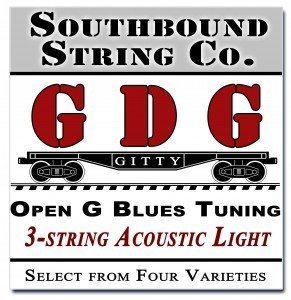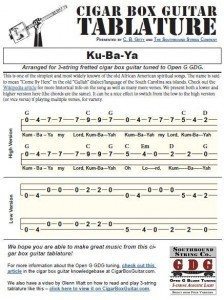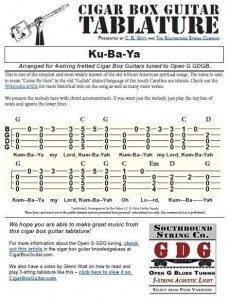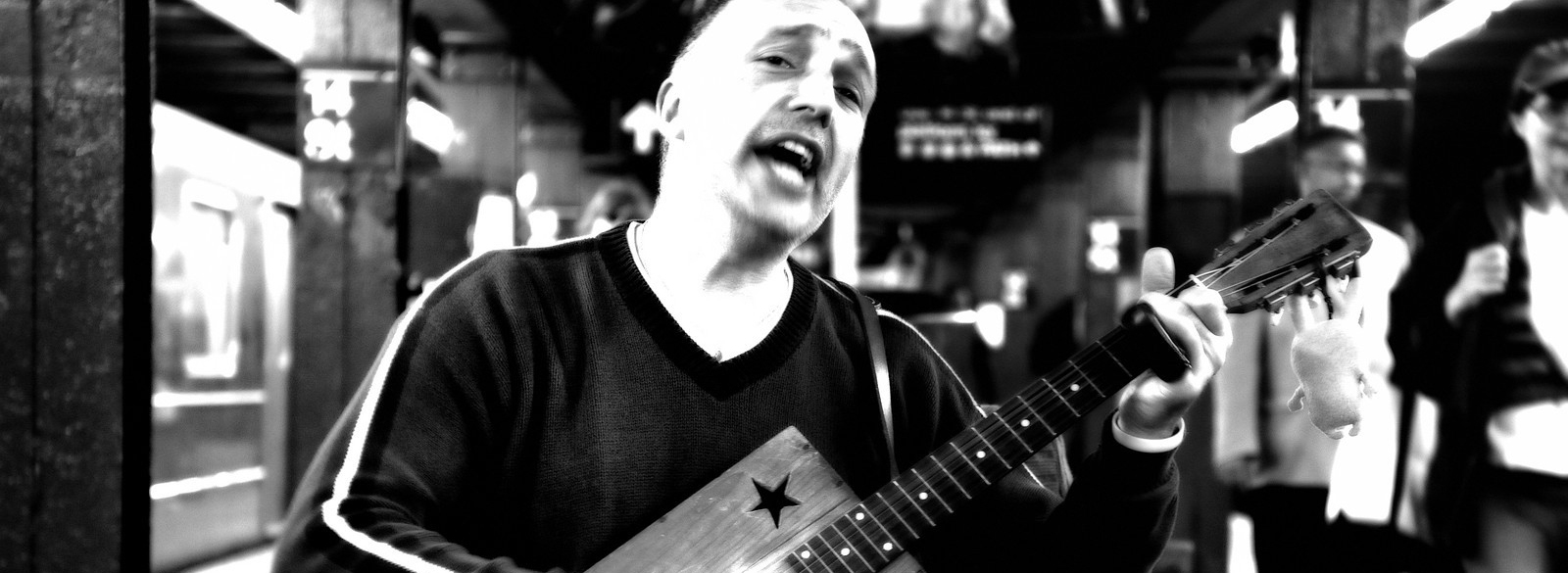knowledge-base
Keep on the Sunny Side – Traditional
As performed by the Carter Family and in O Brother Where Art Thou. View the full text of this entry by clicking the “Read More” link below for the formatted canjo tab…
Arrangement courtesy of C. B. Gitty Crafter Supply, intended for playing on American Canjo Company™ brand one-string canjos with dulcimer-style fretting, with fret numberings as shown below. The open unfretted string is notated as “0″.
Keep on the Sunny Side
0 1 3 4 5 4 3 1 3 0 There’s a dark and a troubled side of life, 3 5 8 8 9 8 5 3 5 4 There’s a bright and a sunny side too. 4 5 6 4 4 8 5 4 5 Though we meet with the darkness and strife 3 4 4 5 3 2 0 1 2 3 The sunny side we a-l-so may view. Chorus 8 8 8 8 5 3 4 3 3 3 3 1 0 Keep on the sunny side, always on the sunny side, 3 3 4 5 5 6 5 4 8 8 9 8 8 4 5 Keep on the sunny side of life, it will help us ev’ry day, 5 5 4 3 3 1 0 3 4 5 5 6 5 5 4 4 3 It will brighten all the way, if we keep on the sunny side of life.
To learn more about this classic American song, and to find more verses, check out this Wikipedia article.
Arrangement by C. B. Gitty Crafter Supply Copyright 2014Keni Lee Burgess
Musical styles: Mississippi delta blues, Roots, Folk, Americana
Handmade instrument played: cigar box guitar
He dabbled in guitar as a teenager, playing in a band and partying with friends. In his youth, artists like Led Zepplin, The Rolling Stones, and Jimi Hendrix opened his eyes to the blues. It was then that Keni Lee Burgess got hooked on the bottleneck slide.
Like so many beginner guitarists, Burgess cut his teeth with the likes of Happy Traum songbooks. Later he learned from listening to newfound heroes, such as Robert Johnson, Sonny House, and Fred McDowell.
As with anyone seeking to master a given craft, Burgess took to the art of diligent practice. He studied with internationally renowned guitarists like Bob Brozman and Woody Mann. And as he puts it, “I have studied with some fine players, but it is really the time you spend alone working on skills and songs that brings the lessons into performance.”
Burgess’s deep dive into his studies led him to cigar box guitars. The Foxfire series of books introduced him to cake tin banjos. From there Burgess had a cigar box guitar built for him by a luthier friend. As Burgess recollects, “It is more of a miniature guitar than a simple stick through a box.”
His love for playing the blues led Burgess to busking. Videos of his performances, ripe with soul and skill, can be found on YouTube. After posting some of his videos there, viewers began asking for lessons.
Burgess then created a series of videos on how to play bottleneck slide guitar. The response was so good that he continued producing lessons, ultimately creating a DVD series that includes how to play 3 and 4 string cigar box guitars.
A love for the Mississippi Delta blues and the likes of Blind Willie Johnson, Charlie Patton, and Muddy Waters continues to fuel Burgess’s love for performing music. He has released 3 CDs in addition to his instructional DVD series, and continues to play live, delighting the public with his bottleneck blues.
Find Keni Lee Burgess on Facebook and Cigar Box Nation.
Kum-Ba-Ya – 3-string Open G GDG – Chords & Tablature for 3-string Cigar Box Guitars
 The tablature in the PDF link below will show you exactly how to play the melody and chords for the well-known spiritual Kum-Ba-Ya.
The tablature in the PDF link below will show you exactly how to play the melody and chords for the well-known spiritual Kum-Ba-Ya.
This song was first written down in the 1920’s, down in the sea islands off of South Carolina, where it was one of the spirituals the former slaves would sing in their unique “Gullah” language/dialect. Later it became a favorite of the folk revival in the 1950’s and 60’s, being recorded by Pete Seeger and a number of other folk musicians.
All of the cigar box guitar tablature here on CigarBoxGuitar.com is presented by The Southbound String Company, the only strings specifically chosen and voiced for cigar box guitars. Be sure to check out our line of Open G GDG cigar box guitar string sets here!
Click this link or the image below to view the printable PDF: Kum-Ba-Ya Tablature for 3-string Cigar Box Guitars

Kum-Ba-Ya – 4-string Open G GDGB – Chords & Tablature for 4-string Cigar Box Guitars
 The tablature in the PDF link below will show you exactly how to play the melody and chords for the well-known spiritual Kum-Ba-Ya on a 4-string cigar box guitar tuned to Open G GDGB. We also have this for 3-string CBGs in a separate entry.
The tablature in the PDF link below will show you exactly how to play the melody and chords for the well-known spiritual Kum-Ba-Ya on a 4-string cigar box guitar tuned to Open G GDGB. We also have this for 3-string CBGs in a separate entry.
This song was first written down in the 1920’s, down in the sea islands off of South Carolina, where it was one of the spirituals the former slaves would sing in their unique “Gullah” language/dialect. Later it became a favorite of the folk revival in the 1950’s and 60’s, being recorded by Pete Seeger and a number of other folk musicians.
All of the cigar box guitar tablature here on CigarBoxGuitar.com is presented by The Southbound String Company, the only strings specifically chosen and voiced for cigar box guitars.
Click this link or the image below to view the printable PDF: KumBaYa Tablature for 4-string Cigar Box Guitars Tuned to Open G GDGB




